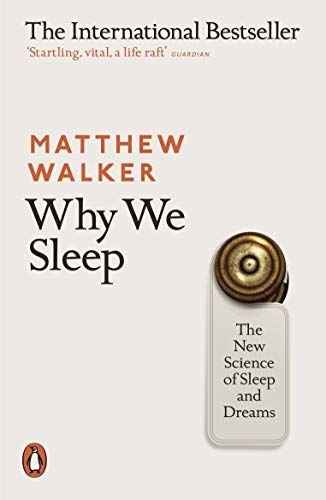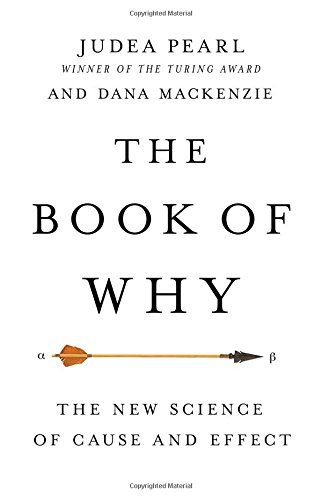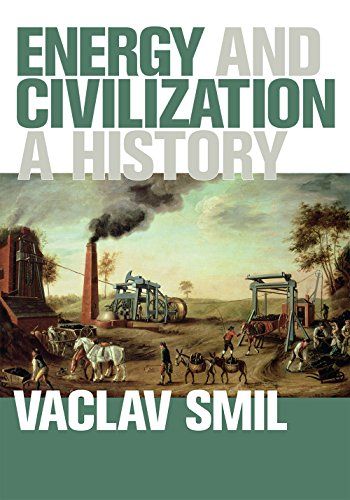By Matthew Walker (2017)
Pages: 340, Final verdict: Should-read
Would you be interested in an inexpensive way of prolonging good health, delaying aging, while improving memory and learning? Why We Sleep will convince you that sleep works that magic. It will spark your curiosity, make you fall asleep (to the author's delight) and make you knowledgeable on this part of life which we tend to know so little about.
Why We Sleep is Matthew Walker's first book. However, Walker is not a novice in the topic. He is a neuroscientist and sleep researcher with a career as a Professor at Harvard University, University of California Berkeley and Google's life sciences branch.
Sleep - a boon for our health
The book takes us on a journey through sleep from a scientist's perspective. At each step, Walker communicates the science behind the latest on sleep. The studies, the tests and the consequences for the general public.
It seems that, as far as scientists are aware, every animal species sleeps. Other primates, for example, sleep for 10 to 15 hours a day. This means that sleep appeared as an evolutionary feature, at least 500 million years ago (yes, this means Dinosaurs probably slept as well). Walker even muses the possibility that sleep was the primordial state of life on Earth and that wakefulness might have evolved later.
Why then is it that Mother Nature gave all animals this need? Narrowing down on human sleep, we learn the basic concepts that everyone should know:
- 8 hours of daily sleep - Everyone needs to sleep 8 hours every day. Only a very small portion of the population has a gene which allows them to get through with less, but you are more likely to be hit by lightning than having that gene. And bad news: over-sleeping during the weekend won't make up for lost sleep during the week. The 8 hours should take place every day and the lack thereof has quite astonishingly bad consequences which you'll read about below.
- Circadian Rhythm - Our biological clock which regulates many body functions over a 24 hour schedule, for example our body temperature (lower at night). It also regulates sleep, which is why you can't easily fall asleep at 11am, even if you haven't slept the night before. The circadian rhythm is different between individuals, meaning some of us can easily fall asleep early in the night, while some others like to sleep late. Walker chastises our society for the unfair rules of early work and school schedules which chronically prevent the night owls from getting quality sleep.
- Melatonin - Released by our body when it get dark outside, it tells the brain that it is time for sleep, although it doesn't generate sleep itself.
- Adenosine - A chemical which accumulates in the brain as we are awake, creating sleep pressure. Caffeine will prevent adenosine from attaching to receptors in the brain. However, with a half-life of 5 to 7 hours, caffeine might be to blame for our general sleep deprivation.
- Sleep Cycles - We sleep in 5 cycles of 90 minutes, with all cycles having at least some phases of each stage of sleep: REM (Rapid Eye Movement) and NREM (Non Rapid Eye Movement) sleep. The cycles which occur in the early morning (4th and 5th) have more REM sleep, while the first cycles in the night have very deep levels of NREM sleep.
- REM Sleep - This is the stage which is responsible for dreaming. It strengthens connections in the brain and helps us deal with our emotions and enhance creativity.
- NREM Sleep - Deep sleep which removes unnecessary neural connections. Moves memories from short to long-term storage places within the brain.
"Can you function optimally without caffeine before noon? If the answer is 'no', then you are most likely self-medicating your state of chronic sleep deprivation." - Mathew Walker, Why We Sleep
Lost opportunities
In fact, we're not wasting time while we lie on our bed for about a third of our lives. Instead, our brain is actually busy at work while we sleep: processing memories, balancing emotional stability, regulating stress, building muscle memory, enhancing creativity, among many other benefits.
Why We Sleep is rich in examples of what we're missing out on when we don't get our daily eight hours of sleep. Page after page, we're presented with the results of scientific studies on how sleep is beneficial for our health:
- Sleeping less than 6 or 7 hours every day "demolished your immune system, more than doubling your risk of cancer"
- Heart attacks increase every year on the day after daylight savings time change, when people get one less hour of sleep
- Drinking alcohol inhibits natural sleep and disrupts learning, even when you drink two days after studying
- After 22 hours without sleep, your performance is as impaired as if you were too drunk to drive (Should we allow doctors to work long shifts?)
- Bad sleep in the week before taking a flu vaccine leads to your body generating 50% less anti-bodies to the disease (half the immunization strength)
- Premature babies are discharged from the hospital 5 weeks earlier when dim lighting conditions favouring sleep are implemented, instead of the always-on lights you typically find in hospitals
- One week of sleeping 4 hours a night and your body acts as if in a pre-diabetic state with a 40% reduced glucose absorption rate
- Sleeping pills will only sedate you and prevent you from generating the kind of healthy sleep you need
After 300 pages of science about the importance of sleep, Walker finishes the book with recommendations on how we could nudge people to sleep better, from hospitals to the workplace, to gain great societal health and productivity benefits.
"Vehicular accidents [in the USA] caused by drowsy driving exceed those caused by alcohol and drugs combined." - Mathew Walker, Why We Sleep
Bottom line
Given today's habits of under-sleeping, this book comes as a timely science bomb to illustrate the importance of increasing hours of sleep in developed countries.
Despite having loved the book, I must also confess it took me quite a while to read through it all. All the scientific evidence is surely welcome, and an important asset of the book, but it has the disadvantage of making the book feel repetitive at times. One would not be blamed to come across the thought 'Yes, I now know that sleep is very important - just tell me how I can get better at it'.
And it is actually the advice on how to improve our own sleep which I found lacking the most in the book. I was left with a bunch of open questions and I wish I had more suggestions besides the National Sleep Foundations Twelve Tips which are reprinted in the book.
But all in all, Why We Sleep is a great book and a very important one as well. If you're thinking of ways to improve your health, working to improve your sleep is a no-brainer. And if you'd like to know why, Why We Sleep is the book for you.
PS: I am now sleeping 8 hours a day, every day, and take extra effort to increase the quality of my sleep. The evidence in the book is too strong to ignore.
Further learning:
Happy reading.



